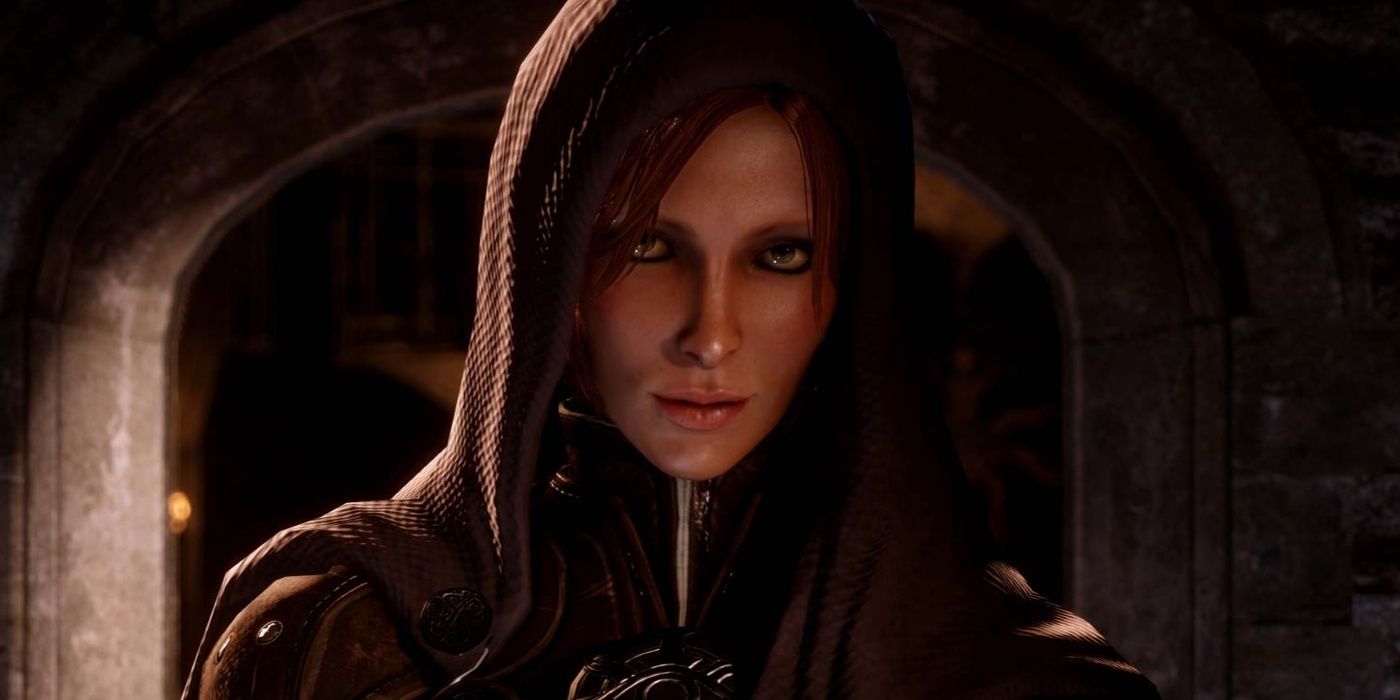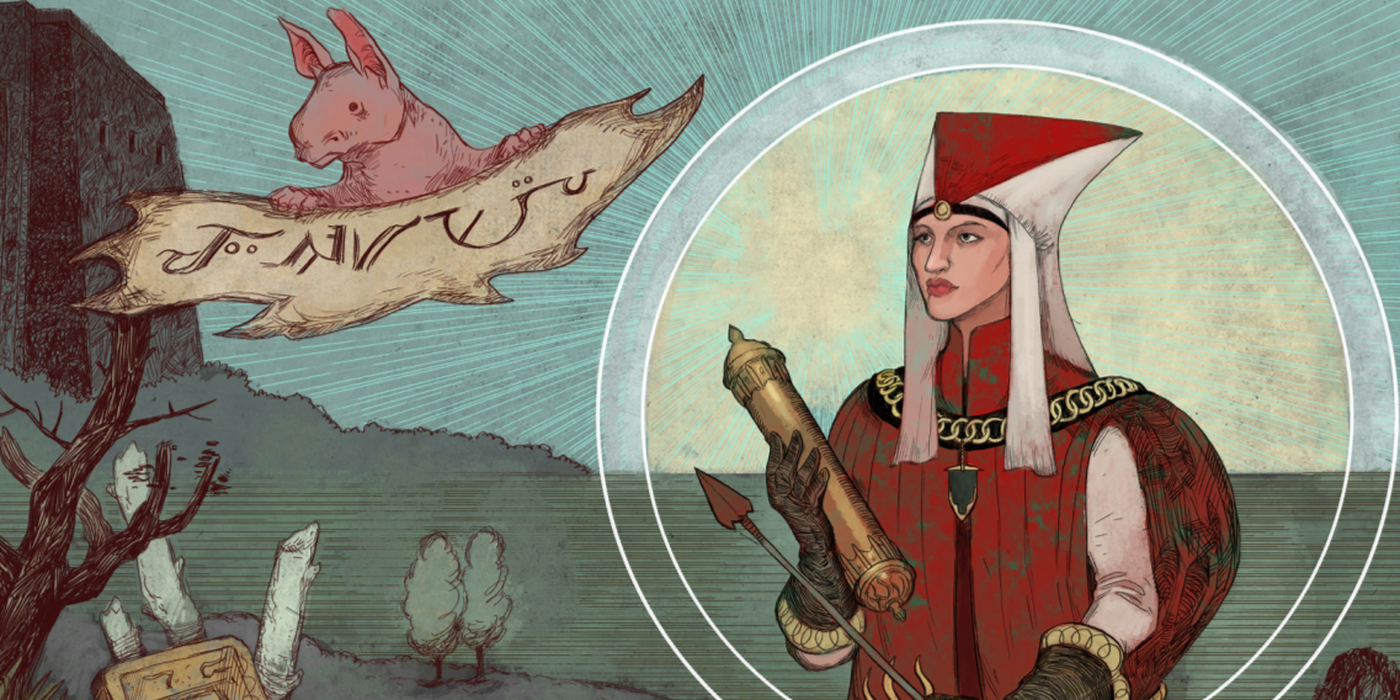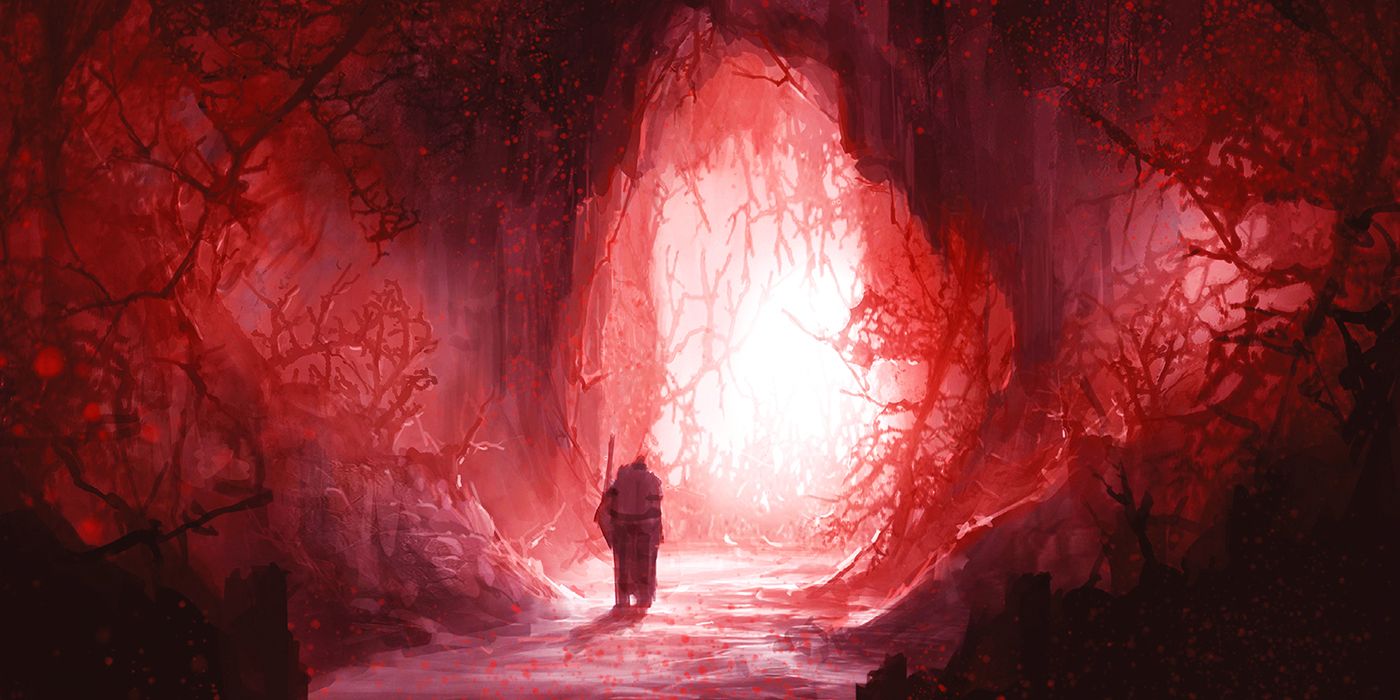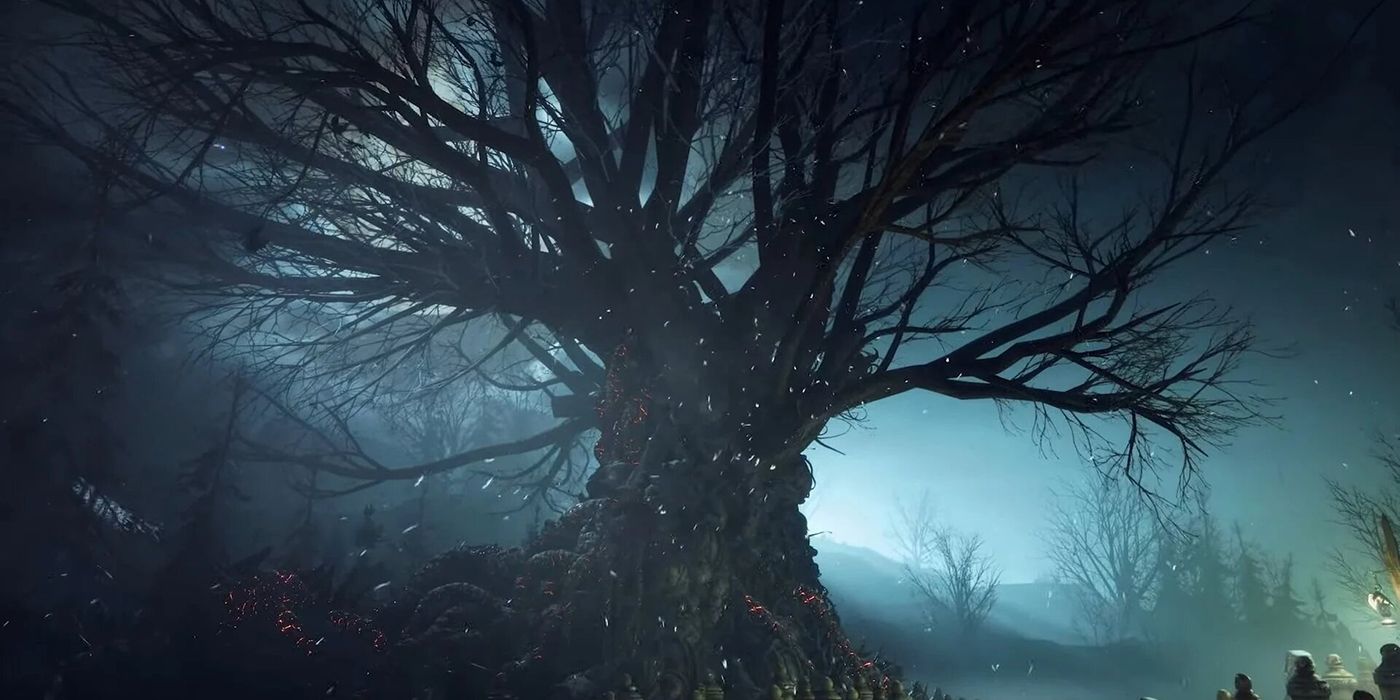Dragon Age: Inquisition’s story left fans with many mysteries that players hope will be answered in Dragon Age 4, the next installment of BioWare’s fantasy franchise. One easily overlooked detail in the game, however, could have huge implications for the world of Thedas and was only available to players who made a vital choice in Dragon Age: Origins. If the Warden in Dragon Age: Origins decides to corrupt the Urn of Sacred ashes, their companion Leliana will turn on them, fighting them to the death.
It is entirely possible to avoid this conflict, as players only need to corrupt the ashes if siding with the dragon-worshipping Cult of Andraste. Regardless of the choice, however, Leliana returns as a character in Dragon Age: Inquisition as the spymaster to the Inquisitor. If she was killed in the first game, Leliana will explain that she awoke at some time after her death, still in the temple, and believes The Maker resurrected her. The implications of this are huge for the Dragon Age lore and pose a mystery that BioWare needs to explain in Dragon Age 4.
Leliana's Death and Return
In an interaction with the Inquisitor early on in Inquisition, Leliana has this to say: “I awoke later in agony. The ashes were gone. I can’t explain how I survived.” This might seem like an easy cop-out for BioWare so that the developer could include the fan-favorite Dragon Age: Origins character in Inquisition regardless of the Warden’s choice. At this point in the game, it appears ambiguous as to whether or not Leliana was ever truly dead or merely survived her injuries after the fight, leaving the distinction as a matter of faith, though one made less ambiguous if the Warden used the decapitation finishing move.
At the end of Inquisition’s final DLC Trespasser, if Leliana is not made Divine, her epilogue states that one day she goes missing from her tower as a cloud of ravens passes overhead, leaving a note which reads: “The lyrium sang thought into being. Now time is stale, and the melody is called elsewhere. Until I am needed, I am free.”
This connects several of the biggest mysteries in the Dragon Age universe that many fans are eager for BioWare to explain. It implies that it is the Lyrium, the magical mineral which connects mages to the Fade, which is responsible for the life-giving powers of Andraste’s Ashes, potentially meaning that followers of Andraste have, unbeknownst to them, been performing a kind of magic rather than witnessing miracles.
The Lyrium Mystery
The fact that Lyrium is revealed in Inquisition’s The Descent DLC to be the blood of Titans, manifested in the Dragon Age universe as giant cavern-like macro-organisms, complicates things further in the Dragon Age lore and makes it possible that the cosmology of Thedas as decreed by the Chantry is based on a misunderstanding of the source of their power. Leliana’s acknowledgement of the role of Lyrium in her resurrection could also have implications for her character if she returns in Dragon Age 4, as she is one of the most religiously devout characters in the series. The line “until I am needed, I am free” implies that the Lyrium which brought Leliana back to life has some sort of will of its own, choosing when to bring Leliana back and for how long.
The character of Cole in Inquisition, a spirit in a material form who can be made more human throughout the game, also raises questions about the way spirits in Dragon Age can interact with the world. Cole's arc raises the possibility that Leliana was not, in fact, resurrected in the traditional sense, but that the Spymaster players interacted with in Inquisition was more akin to a "Lyrium Ghost," a spirit able to interact with the physical world like Cole without quite being a part of it and could make for interesting stories depending on which companions return in Dragon Age 4.
If players killed Leliana in Dragon Age: Origins and then made her the Divine, she does not disappear, but the implication remains that some sort of Lyrium Ghost has become the Divine Victoria, and that, unbeknownst to many, the Chantry and the Fade are now more intimately connected than before. Considering the fear that the Chantry and the Templars have for magic, causing a Mage Rebellion in Dragon Age: Inquisition, the realization of this connection could have big repercussions in the Dragon Age world.
What This Means for Dragon Age 4
The Descent re-contextualizes Lyrium and its power, going as far as to give Shaper Valta some kind of magical powers after she is exposed to raw Lyrium, potentially opening the door for Dwarf mages in Dragon Age 4, and implying that the discovery of the true nature of Lyrium will be central to the plot of the next game.
The teaser trailer for Dragon Age 4 also shows a red substance running like blood through stone and metal, which considering some of the concept art released for the next game and lyrium as Titan’s blood in The Descent, is also very likely to be Red Lyrium. Leliana’s story in Inquisition, if players killed her in Origins, reveals the surface of a greater mystery which BioWare will hopefully explore in the next game regardless of whether or not players made the choice to corrupt the urn in the first installment.
Rather than a simple handwave to Leliana’s return, it seems likely that the explanation for Leliana’s resurrection is tied into the broader mystery of Red Lyrium and its influence behind the scenes of both the religious and magical world of Dragon Age. Dragon Age 4 will need to explain this mystery regardless of Leliana’s status.
For players who saw Leliana die and return, the unravelling of the Lyrium mystery will hopefully simultaneously explain Leliana’s resurrection, the mystery of the Titans, and the world-shaking implications all of this has for Solas the Dread Wolf’s plan to destroy the Fade. Even if Leliana was not killed in Dragon Age: Origins, BioWare should explore the mysteries of Lrium in the next game in a way that covers Leliana’s revival if players killed her and explains one of Thedas’ far larger mysteries if they did not.
Dragon Age 4 is in development.




